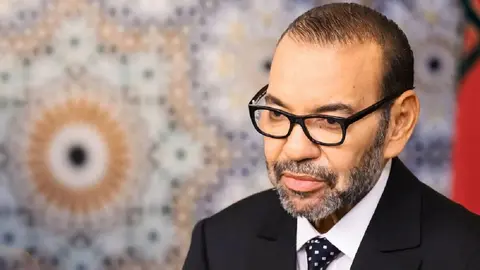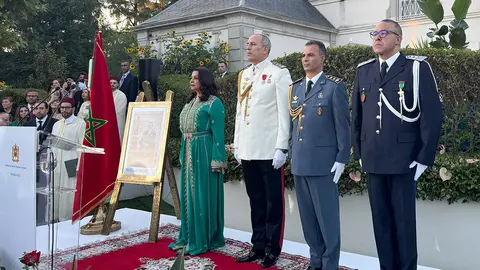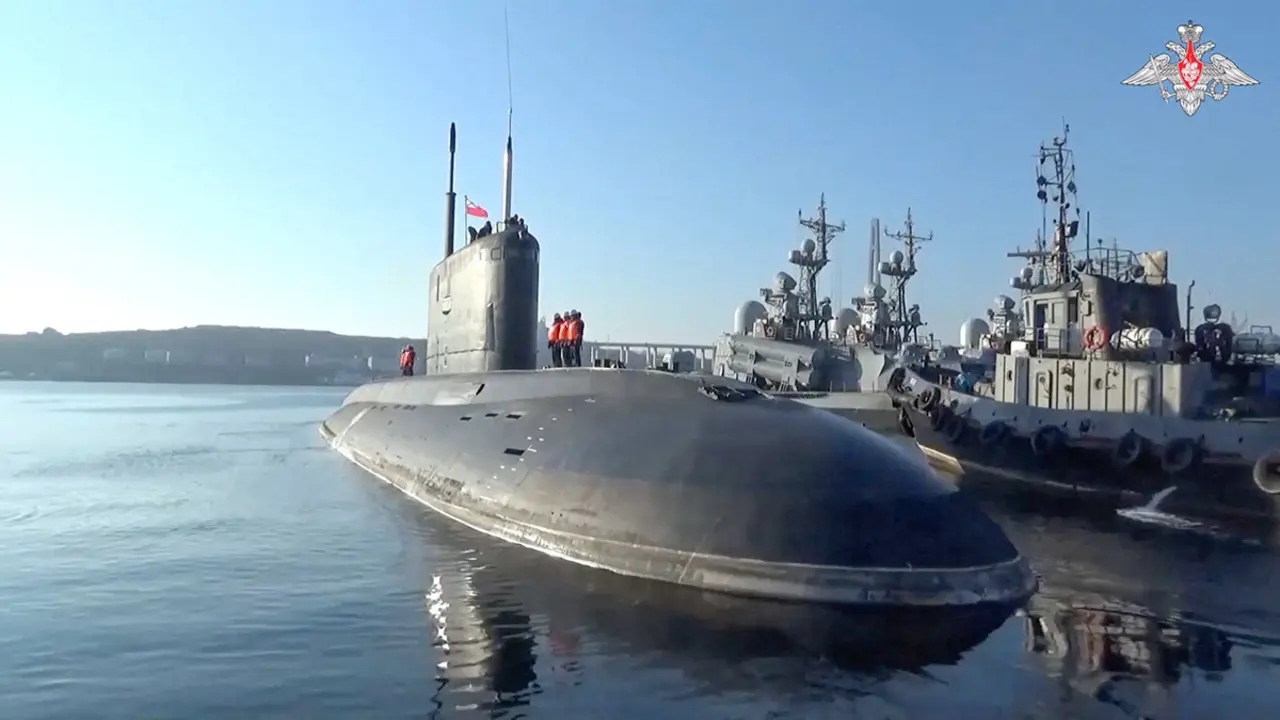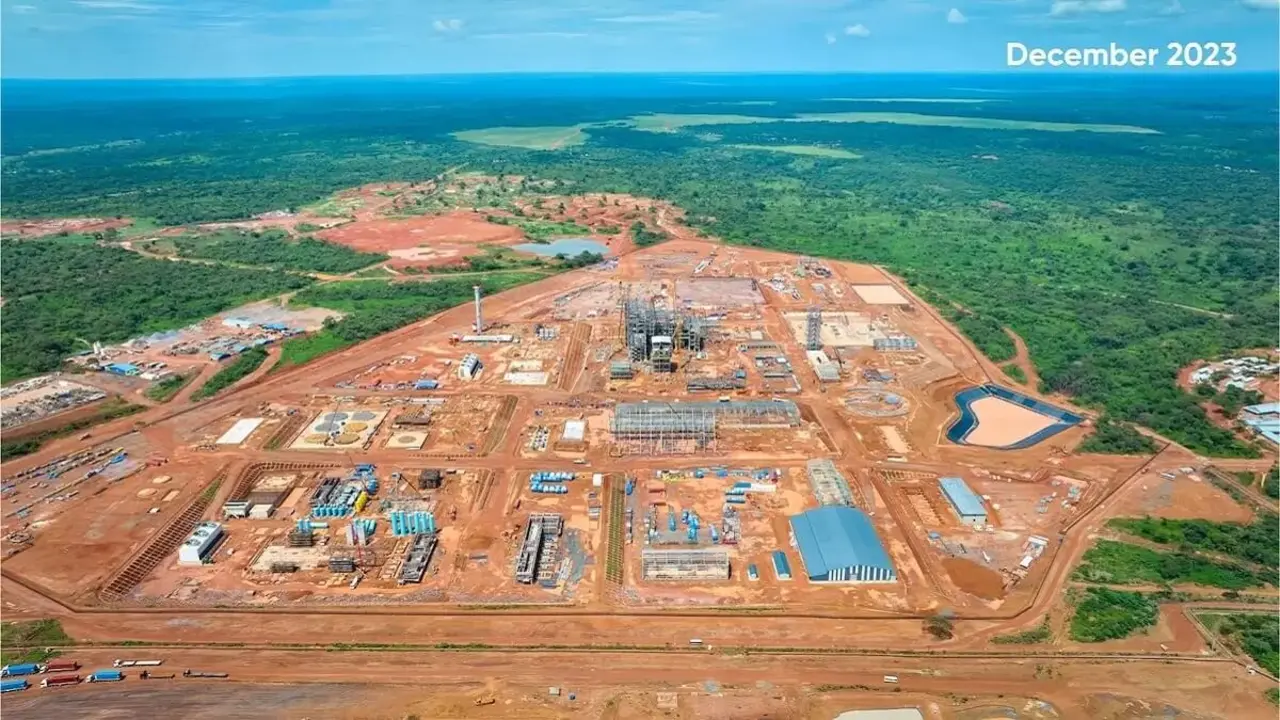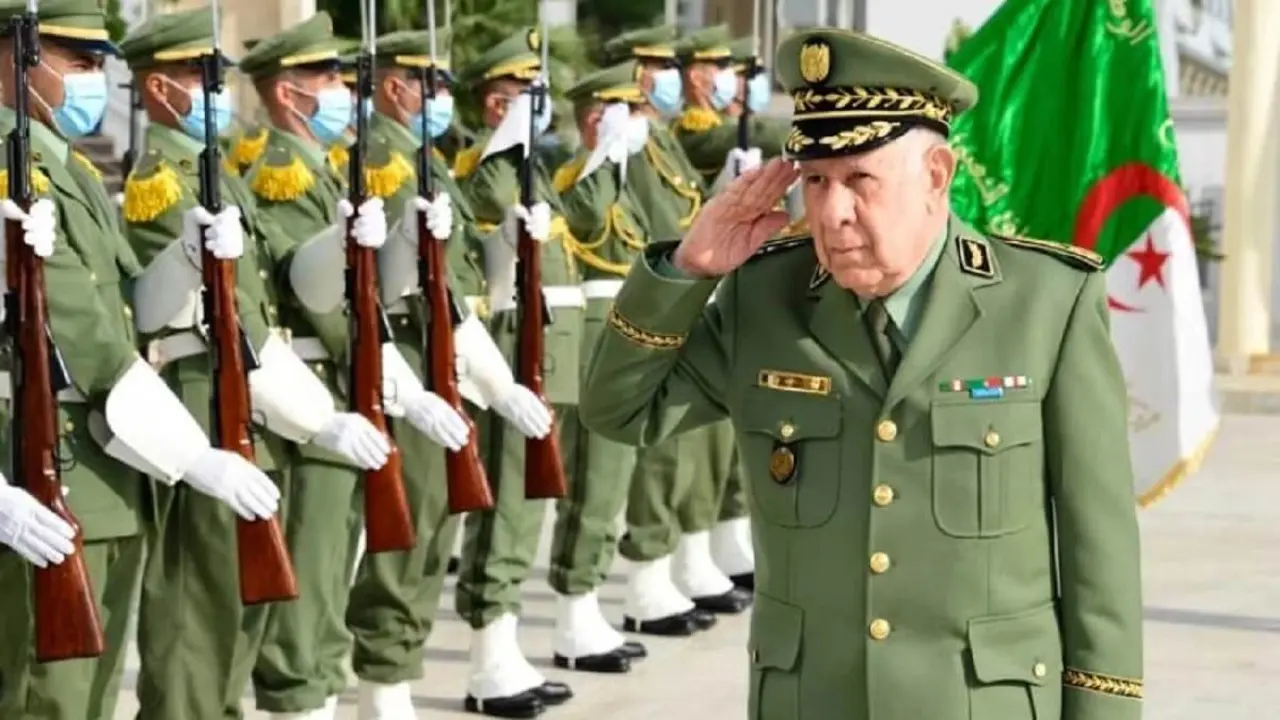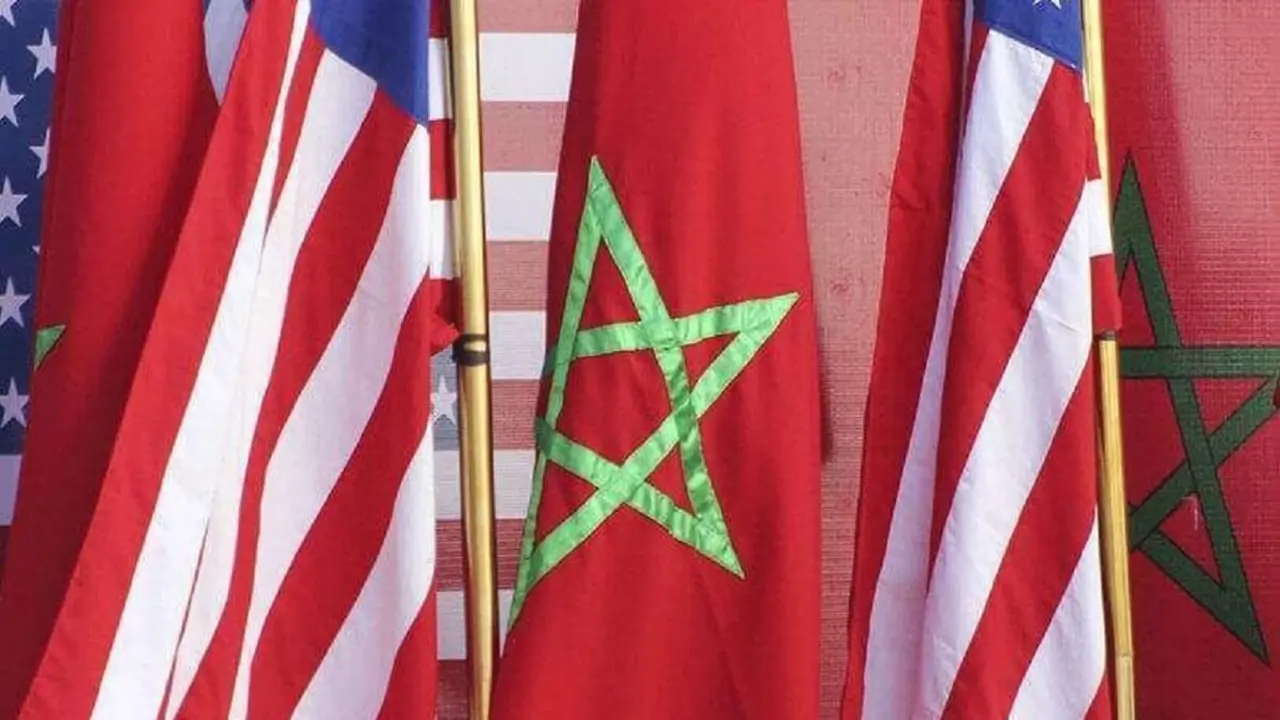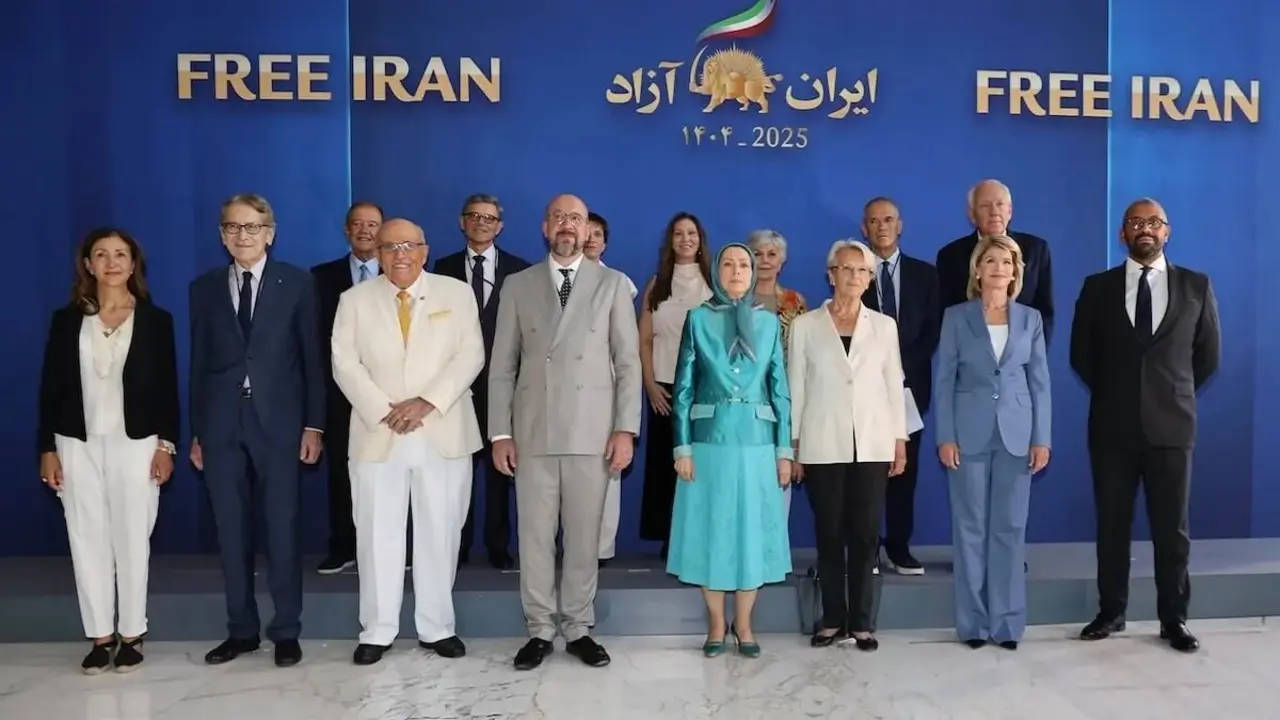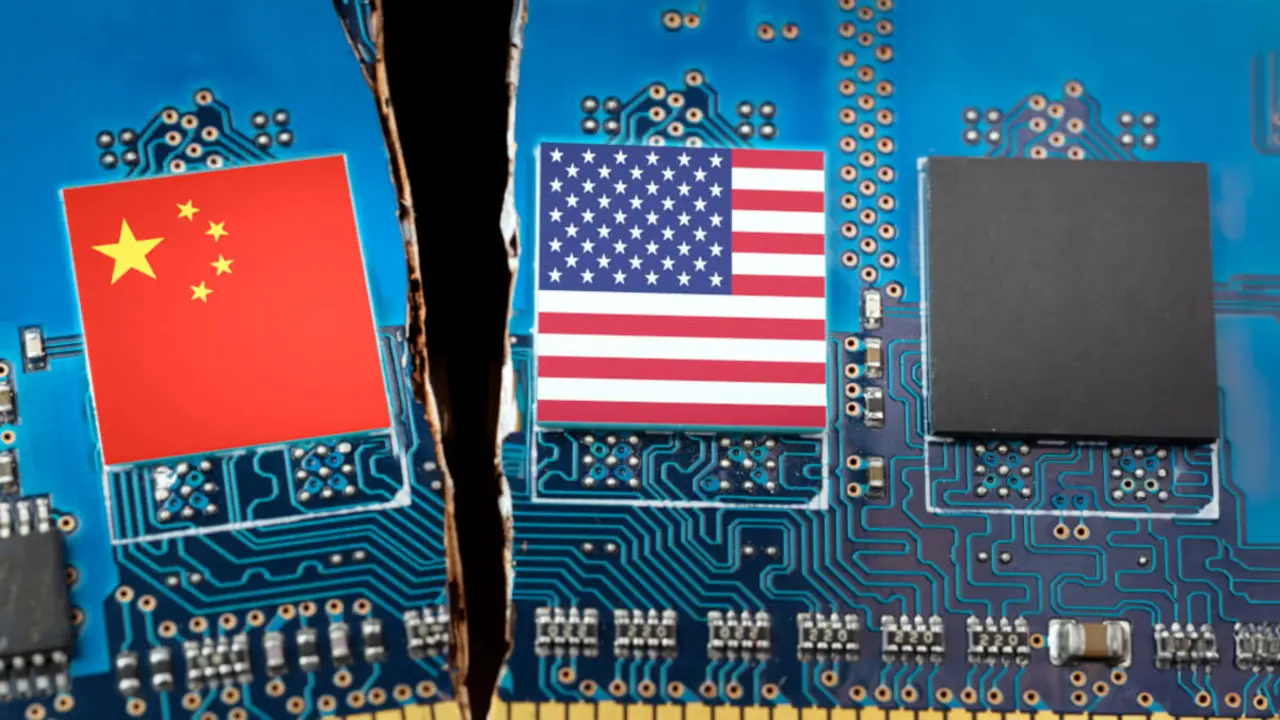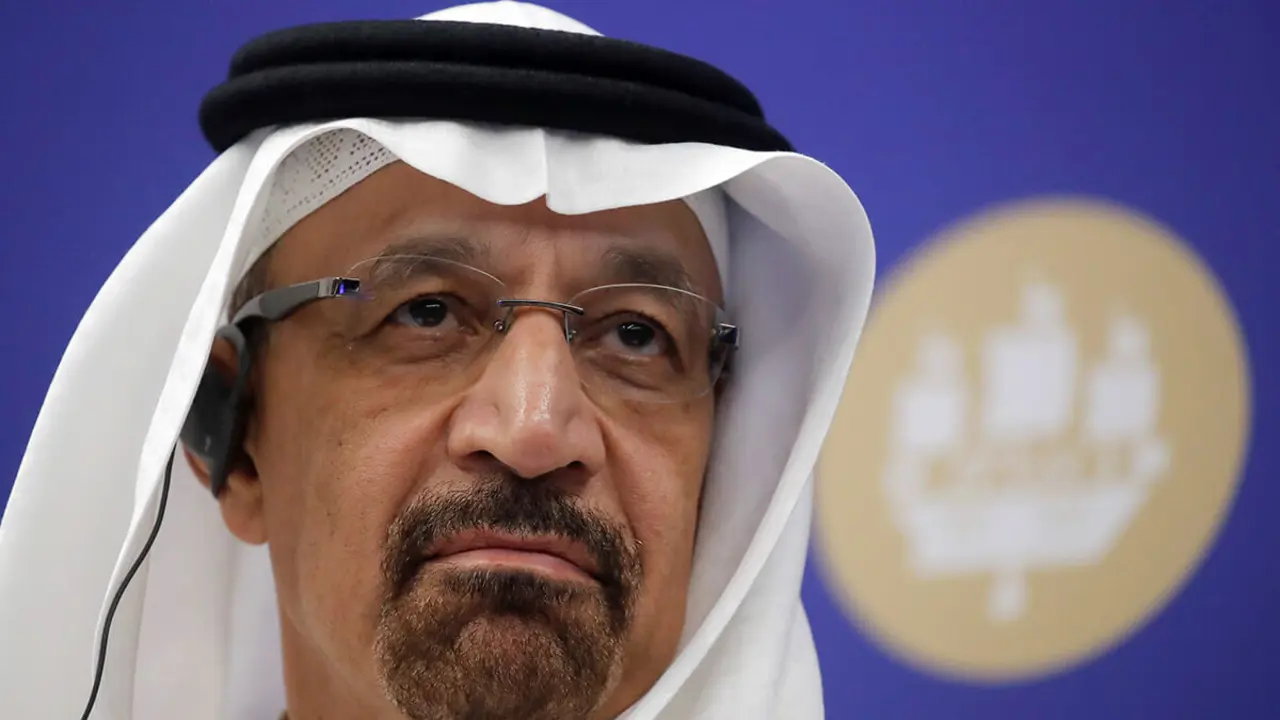Nourdine Mouati: ‘The King of Morocco has been bold and empathetic in modernising the country’
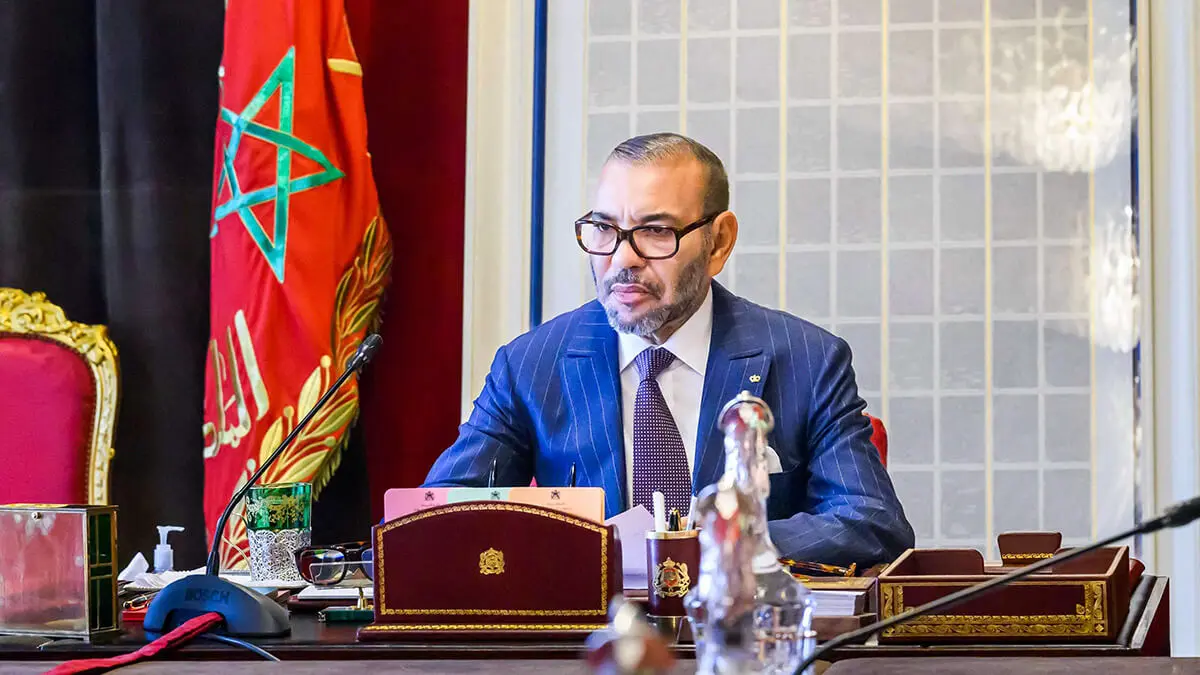
Nourdine Mouati, geopolitical analyst and manager of institutional and business cooperation projects between Spain and Morocco, analysed on Onda Madrid's programme ‘De cara al mundo’ the values and measures promoted by the King of Morocco, Mohammed VI, on the occasion of the 26th edition of the Throne Day celebrations, which commemorate the Alawite monarch's accession to the throne.
We read in your extensive, detailed and very interesting article, published as a report in Atalayar magazine, the following headline: ‘Mohammed VI, more than 25 years of reign, the profiles of a bold and empathetic sovereign’. Why bold and empathetic?
Because, since he ascended to the throne in 1999, he has not ceased to project Morocco, both regionally and globally, as a country that is modernising at a rapid pace, thanks in large part to his vision, because the King has been bold in the sense that he has been able to modernise the country, position the Moroccan economy globally, and also make progress on issues that were very thorny, on very sensitive issues such as women's rights and freedom of expression; and also an empathetic monarch, because what characterises His Majesty King Mohammed VI is above all his sensitivity. His sensitivity towards the most disadvantaged sectors of the country, his sensitivity towards women, his sensitivity also towards the suffering of many Moroccans in his latest speech, the throne speech. This sensitivity towards rural areas and the suffering experienced by these areas, which need regeneration and development plans so that they can also keep pace with, for example, Moroccan cities and urban areas, was also reflected. Anyone who comes to Morocco and compares the Morocco of 1999 with the Morocco of today, in 2026, will see that there has been a great change, a great revolution at all levels, in all sectors, including social spheres, thanks to the vision, the bold vision of His Majesty the King, and also thanks to that sensitivity and empathy.
I believe that even foreign leaders, when they define Mohammed VI's personality, define him in terms of being a visionary monarch and a monarch who is very sensitive to all issues affecting his people.
Let's go into more detail. You talk about the feminist king in the article.
Yes, the feminist king, because even when he was heir to the throne, when he was prince, he showed an interest in reaching out to feminist groups in Morocco, and when he ascended to the throne, he began a period of consultation in which he learned first-hand about the demands of Moroccan feminist groups. In 2004, there was a major revolution in the Mudawana, which is the Moroccan Family Code, which began to grant rights to women.
We are currently in the second phase of updating this Family Code, which will grant women rights on issues that are very important to more than 50% of the country's population, mainly relating to economic rights, inheritance, as well as the issue of eradicating polygamy and adapting the text of Islamic law to modern times, and also making progress on issues of women's access to social services, healthcare and positioning women in the labour market.
In recent years, there has been significant progress in women's rights, and Morocco has positioned itself, and I believe it is in line with European countries in terms of the Family Code, which we are about to approve, because they have been debating it for two years and have also opened the debate to all social groups in the country in order to move forward with this new Family Code, granting more rights to women.
This can be seen in positions of responsibility, as well as in the women who have gained prominence in the business world. Much of the dynamism that Morocco has experienced in recent years is thanks to women and their involvement in public life, and the King is firmly committed to women. I believe that in this sense, the new Mudawana will be very revolutionary and will enable Morocco to position itself at the same level of democratic quality as other countries, such as European countries, without forgetting, of course, that we are an Arab country with a history and a culture, a civilisation that dates back more than 12 centuries, and therefore we must also take into account the opinions of other traditionalist sectors and strike that balance. Morocco is a stable country, and the King ensures that stability and plurality of opinion throughout the country.
Let's move on to another chapter, the King as conciliator. Conciliator of what? Why?
Because, mainly, as I have said, the King is very empathetic, he is very sensitive to the issues that are most important to the population, and when he ascended to the throne there was a dark period in the history of Morocco of confrontation between the monarchy and sectors linked to Marxist, Leninist and Communist movements that wanted to change the system, the model of government in Morocco, and, as happened in several countries in the region, there were attacks on human rights, and the King has always been in contact with part of the Moroccan dissident movement since his father, Hassan II, ruled. Proof of this is that when he ascended to the throne in 1999, many of those in charge of various public organisations dedicated to human rights were former victims of repression under the Moroccan regime.
In 2004, he created a reconciliation body. This body sought to clarify the truth about the disappearance of several opponents during the period of Hassan II, mainly in relation to human rights issues, and a process was opened in which the victims had a voice and also received support from the State to demand changes, ranging from compensation to public reparation. Much of the dissidence during the Hassan II period currently holds very important positions in the Moroccan administration, mainly related to human rights.
Take, for example, Yasser Rashid N'Diayemi, who was a leader and international defender of human rights who went into exile in France for many years and returned to Morocco to chair the High Authority for Human Rights and who currently also chairs the Council of Moroccans Living Abroad. As I said, a large part of the Moroccan dissident movement has been integrated into the Moroccan government and public institutions, and Mohammed VI has been sensitive to the demands of the victims of the former regime. There has been a lot of compensation and public reparations, people have even regained their positions in the civil service, and this dynamic continues.
In other words, Morocco is also a complex country, a country with a very rich history, as I said, more than 12 centuries, four centuries of the current monarchy, the current Alawite monarchy, and it is a country in which it is sometimes difficult to maintain a balance.
That is why the Moroccan people have complete confidence in King Mohammed VI, in the monarchy as the arbiter and coordinator of all efforts to advance the democratisation of the country. Morocco is a stable country, it is the most advanced democracy in its region, mainly in the Maghreb and in Africa.
Furthermore, Morocco has evolved considerably. We are currently in the process of amending the Penal Code, which is also being promoted by the King, in which advanced tools such as alternative penalties are being analysed. In Morocco, in some cases, prison sentences will be abolished and replaced mainly by electronic tagging. In other words, the King is promoting real modernisation, and anyone who wants to find out a little more about this process can see the latest laws that have been passed. A particular example is the Penal Code, which is very much in line with the penal codes found in the European Union, and this sets it apart from other Arab and African countries.

And I would point out, let's not forget, the 2011 Constitution, as that reform came just when the misnamed Arab Spring had disastrous consequences for many countries. The reaction of Mohammed VI and his royal cabinet led to stability, reform and a transfer of power that has been a guarantee of stability and security for the whole country.
Yes, exactly. In Morocco, we are moving forward with our own characteristics because each country has its own local idiosyncrasies, and we are moving towards a constitutional monarchy with characteristics linked to our cultural heritage, and this is evident. Morocco is a strategic partner of the European Union and Western countries, and this is largely thanks to the fact that Morocco has evolved considerably in terms of law and legislation. For example, our legislation at the business and commercial level is very much in line with that of European Union countries. This sets us apart from many neighbouring countries and is what makes Morocco different, all thanks to the impetus provided by the monarch.
The King has truly been a catalyst over the last 26 years and has enabled us to gain rights and make progress in the economy and on social issues, although there is still much to be done. King Mohammed VI already mentioned this in his recent speech, but the country is moving forward and anyone who has been here 20 or 25 years ago notices the difference, whether they are businesspeople, political leaders or even tourists who come to Morocco and are a little amazed at how the country has evolved. It is true that we are seeing a two-speed evolution, with differences in rural and remote areas...
Wait a minute, don't get ahead of me. Let's go back to the article because it touches on the chapter about the king of the poor. There, indeed, Mohammed VI did not shy away from the problems in his speech, and in your article you really talk about the challenges of inequality, poverty... Well, we also have that in Spain, but in Morocco, perhaps, in rural areas and areas that are so developed, splendidly developed, such as Tangier, Rabat, Casablanca or Marrakech, there are many differences.
Yes, this was even more evident when the earthquake struck and, unfortunately, several areas have a very significant development deficit. These are remote areas in the Atlas Mountains, in very localised areas that are difficult to access. Although there has been progress, as the King pointed out in his speech, Morocco has seen a significant decline in poverty, in multidimensional poverty, which has fallen from 12% in 2014 to 7% in 2024.
To 6.8% in 2024, as stated by the Moroccan ambassador to Spain at the last official reception on the occasion of the Throne Day celebrations.
And that is a great achievement for a country that does not have significant natural resources. Morocco does not have oil like other countries in the region, but it is a country that has made great progress. It is true that we need to make an effort in remote rural areas, and this is what the King has insisted on. He has also insisted on the integrated development of these areas, which should not be limited to infrastructure, but should also include human development that allows the generation of new resources for the local population and enables them to settle in these territories. Morocco is a vast country, stretching from Tangier to La Güera. It is a country with a very difficult terrain, but that does not mean that the government should not focus not only on the large cities in the development of logistics areas, industrial areas and new ports, but also on rural areas. Morocco has traditionally been a rural country, a country that has based its economy on agriculture, and we must not neglect this sector or, above all, these areas.
This speech has already sparked a national debate in which the role of political parties and elected officials in these rural areas, in these town councils, is also being discussed in order to speed things up a little. The resources are there. The government has resources, thanks to economic development and exports, we have a basis for public investment, which is very important in Morocco in these rural areas, and we must not neglect, as His Majesty King Mohammed VI said, rural areas in Morocco.
We need human impact, we need people to feel the effects of this development, this growth and this modernisation. One section of your article that caught my attention, especially the headline, is the one about King Midas. High speed, Tangier Med, major advances, industrialisation... If I may say so, the great success of the monarchy in Morocco, contrary to what is happening in Europe or Spain, is the industrialisation they are carrying out in their country, something that we now need to recover in Spain and Europe because we are suffering enormous problems from having sent manufacturing to China or other places.
Last year, or I think it was this year, the OECD published a report stating that, in the automotive sector, it was more competitive to produce in Morocco than in China because of the conditions and advantages offered by the Moroccan government to all manufacturers.
Proof of this is that from Renault to Stellantis, we have two car manufacturing ecosystems. We are among the top 10 car manufacturers internationally. We are one of the five countries that export cars to the European Union and we are the leading car manufacturer on the African continent. And it should be emphasised that this was achieved in an extraordinary period of time, i.e. a very short period. In ten years, we have been able to create a new industry in Morocco, a competitive industry that is exporting more than half a million cars to the world. This is a feat in itself and it has been thanks to the vision of His Majesty King Mohammed VI.
The King could have focused primarily on other sectors such as the modernisation of agriculture, which is underway, fishing or simply phosphates. But no, one of the King's first successes upon ascending to the throne was to position Morocco in the global logistics supply chain as a logistics hub. And the first success was the port of Tangier Med. The port of Tangier Med has been a personal success for His Majesty the King, as I also emphasise in the article, because initially the technical team in charge of the project located the port on the Atlantic coast, about 20 kilometres south of Tangier. That would have been a serious mistake because the heavy traffic is in the Strait of Gibraltar, and the King, against all the technical reports, insisted and also made every effort to ensure that the port of Tangier Med was located opposite the Spanish coast in the middle of the Strait of Gibraltar, in a very complicated area, but it has proven to be one of the most important ports in the world. It is the leading port in Africa, the leading port in the Mediterranean, has the highest level of container traffic and is also in the top ten ports worldwide. In other words, this success has allowed us, with our export capacity and logistics infrastructure, to also develop industry, which we are doing at a rapid pace compared to other countries. One of the most important plants for the manufacture of anodes for electric car batteries, COPCO, has just been inaugurated in Jorf Lasfar. This project is a joint venture between a Moroccan business group and a Chinese group, and several industrial zones are being developed.
One of the most important on the continent will be the logistics and industrial services zone in Dakhla, in southern Morocco. The King has now promoted the creation of a very important port, Dakhla Atlantic, with an industrial logistics zone covering more than 1,650 hectares.
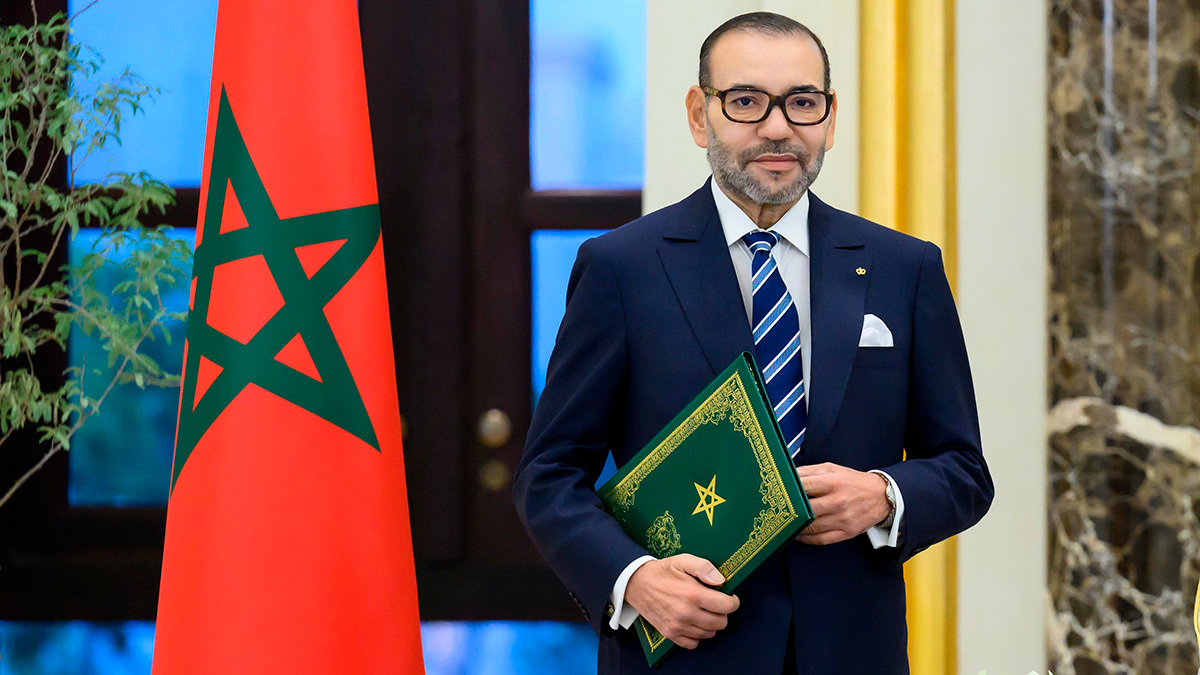
This will not only greatly revitalise the region, but also strengthen the Atlantic Facade Initiative so that the countries of the Sahel can strengthen their economies. Mr Mouati, we have three topics left to discuss. Let's get to the point. Outside Morocco, for example, in Spain, the figure and key actions of King Mohammed VI are not well known or sufficiently appreciated. We need to know much more about who the King is and what he means not only for Morocco, but also for the stability of the region, that is, for our stability.
Yes, unfortunately, much is unknown about Morocco, especially in the media, although your programme works to ensure that opinions can always be expressed and that we can learn more about our neighbour across the border and our leading economic partner, Spain's leading economic partner.
In Africa, Morocco is your leading customer. This must also be emphasised because when we attend Spanish-Moroccan events, we always point out that when the King ascended the throne in 1999, Morocco's main partner was France, and thanks to the King, a change of direction was imposed at government level that has enabled Spain to achieve more than 15 billion euros in exports of Spanish products to the Moroccan market. This is thanks to a real desire.
The King is a Hispanophile. I always insist that Mohammed VI is a Hispanophile king, he had two Spanish institutions, he speaks Spanish and I think that much is unknown about his personality and his love for Spain. And, thanks to the King in 2007, Spain overtook France in terms of trade flows with Morocco, which is very important because it has enabled more than 13,000 Spanish companies to export to Morocco. There are Spanish multinational companies, I won't mention any names, but they have secured million-euro contracts in Morocco, and that is thanks to the impetus of His Majesty the King. Thanks to this change of direction, change of partnership and his insistence on developing economic ties with Spain.
And, in addition, Mr Mouati, common geostrategic interests. I am thinking of regulated and controlled immigration within the limits of available resources, where the European Union also has to intervene, but also the geostrategic interests of the region, which are shared by European countries and the United States.
Yes, Morocco is key. It is key to the security of the Strait of Gibraltar and that is why it is an advanced partner of the European Union, also in terms of security. It is also a very important partner of NATO and a strategic partner for the United States. Morocco, as I said, is the guarantor of stability and security in this very complicated area that is the Maghreb and North Africa. This is demonstrated every day in the cooperation between the security forces of both Spain and Morocco, which is exemplary. We have joint police stations, both of the Civil Guard and the National Police, and we have more than 3,500 kilometres of coastline. Controlling all that coastline requires a lot of resources, millions of pounds, and Morocco is also making a significant effort to integrate the entire sub-Saharan population that wants to cross to the other side but remains in Morocco.
I would also like to highlight an economic aspect that sometimes generates, shall we say, bad press in Spain, which is the issue of agricultural exports. I don't know if the average Spanish citizen is aware of or understands the importance of Moroccan agriculture for Spain because, if it weren't for Moroccan agricultural products, inflation in Spain would have risen even more, as Spanish farmers prefer to sell their products in markets with greater economic power, such as those in northern Europe, rather than selling tomatoes on the Spanish domestic market, for example. So how is this deficit in agricultural products made up? Thanks to Moroccan agricultural products, thanks to their very competitive prices, which ultimately affect ordinary Spanish citizens because they mainly affect their pockets. I think it is important to emphasise these aspects, as our economic complementarity is very important. Morocco is even helping to limit inflation in Spain, and there are Spanish companies producing agricultural products in Morocco that are mainly destined for the Spanish market because Spanish products are not sold on the Spanish market; they prefer to sell them in other countries.
And let's not forget the issue of energy, how Morocco is committed to renewable energies, to hydrogen, and when Spain suffered a blackout, Andalusia recovered its electricity and energy thanks to Morocco's support. Nourdine, I know we could talk for two hours because the issue of Algeria also requires more time. I don't know if he will accept the olive branch offered by His Majesty, who has once again reiterated his call for reconstruction and reconciliation.
Knowing a little about the military regime that rules with an iron fist... The Algerian brothers recently shot at one of the migrant boats and the Algerian army killed a Moroccan citizen.
In the end, if there is no regime change in Algeria, I doubt that there will be any progress, unfortunately, and this will be detrimental to the Algerian people, who are a very rich people. It is one of the world's leading producers of gas and oil, but its people live in harsher conditions than the Moroccan people. In other words, the king is magnanimous and sensitive to the brotherhood that exists between the Algerian and Moroccan people, but unfortunately the military leaders, the military junta that governs Algeria, are not going to take up the gauntlet.


